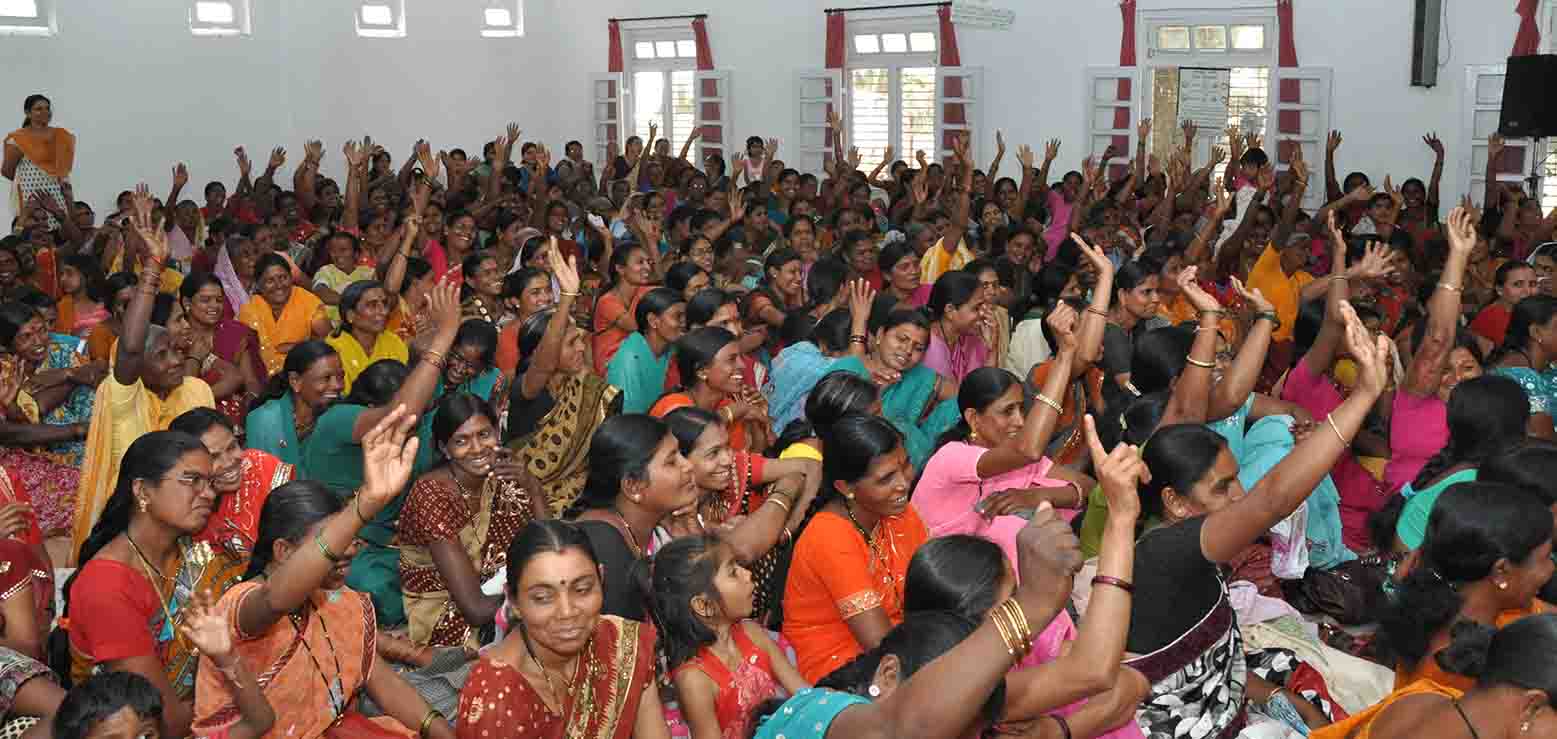
Self-Help Group is a very effective tool for not only women empowerment, but for overall development of the community. The Department of Community Medicine fully appreciates the critical link between women empowerment and health empowerment and considers the involvement of women’s self-help groups (SHGs) to be the key to the success of any health program. The Department has now achieved the formation of 3-4 SHGs per village in all the villages of its field practice area; viz. PHC Anji, Gaul and Talegaon. With the passage of time the members of SHGs have learnt to manage the group individually and have developed as member owned and member managed institutions. The Department provides assistance to SHGs to add a health action agenda to their primary financial function (finance plus) so that the women are able to determine health priorities and to play a proactive role in health care delivery in their villages. A total of 170 self-help groups were functioning on Mar 31, 2011 in the adopted villages of the Institute: Anji PHC area (41), Gaul PHC area (34), Talegaon PHC area (85), Wardha Urban Health Center adopted area (10).
All the SHGs are linked with banks and have updated member account books. The total monthly collection of all the SHGs amounted to Rs. 922455 in the month of March 2011.
Kisan Vikas Manch
Kisan Vikas Manch (Farmers’ club) has evolved as a way to involve men in the health activities at village level. The programme provides learning opportunities for the members to improve their agricultural yield and in turn improve their economical status. The health action agenda is added to the primary purpose so as to empower them to actively participate in the health program. A total of 12 Kisan Vikas Manchs were functioning on Mar 31, 2011 in the adopted villages of the Institute.
In Anji PHC area, a federation of all the Kisan Vikas Manch from the villages was formed in Dec 2008. This is being utilized as platform to strength health agenda among the men in the program. E-Chaupal center has been established at Anji for the federation of KVM. This center will be utilized for training of KVM members. Two issues of newsletter ‘Kisan Shakti’ were published during the year.
A resource center for Kisan Vikas Manch has been developed at KRHTC, Anji.
Health Insurance
Health insurance has been one of the important activities in the program villages. The Village Health Nutrition and Sanitation Committee (VHNSC) members have accelerated their activity in respect to insurance coverage in their village with Kasturba Health Society and a total Rs.29,28,820 has been collected for insurance coverage for the year Jan-Dec 2014. This includes coverage of total 301 community based organizations.
Continuing Education Programme for the Anganwadi Workers
Continuing education programme for the Anganwadi workers are being conducted in the three PHC areas adopted by the Department of Community Medicine. Continuing education programmes aim at improvement of the skills of Anganwadi workers. During these training programmes, effort is made to provide the workers with training on health as well as other issues of early childhood development.
Health and Nutrition Day at village level
The Department promoted Bal Suraksha Diwas (Child Survival Day) on a monthly basis in all the villages of the three PHC areas under the Department. The Bal Suraksha Diwas is an expansion activity of the existing immunization day being observed in villages through the Primary Health Centers. Apart from immunization, the activities organized on the Bal Suraksha Diwas included health check up and weight checkup of children of 0-3 age group, ANC check up, PNC check up and nutrition and health education. Village health workers, members of SHGs and adolescent girls are being encouraged to participate actively during the Bal Suraksha Diwas.
The Village Health Nutrition and Sanitation Committees have been entrusted with the responsibility of organizing the day and also ensuring that the beneficiaries access the services. The active participation of the Village Health Nutrition and Sanitation Committee members has led to increased turnouts of beneficiaries during the Health and Nutrition Day at village level and thus increased coverage with maternal and child health services.
Continuing Education Programmes for Health Workers
Continuing education programme have also been started for the health workers from the three PHC areas (viz. Anji, Gaul and Talegaon). A total of 20 health workers from these PHC areas participate in the one-day continuing education programme organized every month. The programmes aim at improvement of their skills in delivering the Reproductive and Child Health Services in the community.
Family Life Education through Schools
Propounding the need for Family Life Education (FLE) for adolescent girls, the Department of Community Medicine has facilitated family life education in all the high schools and junior colleges of the three adopted PHC areas. Following this, the trained teachers have started, sessions on family life education in their respective schools and junior colleges.